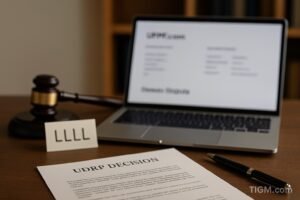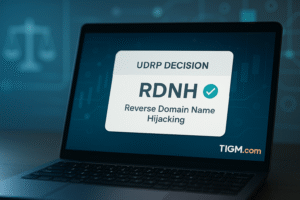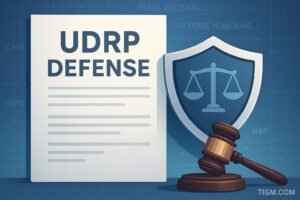A UDRP panel has ordered the transfer of Toptal.ai to Toptal, LLC, finding that the respondent’s use of the domain constituted clear brand impersonation and passing off against the established freelance talent marketplace.
The decision reinforces straightforward UDRP principles: registering an exact-match domain of a well-known brand in an alternative extension, then using it to impersonate or trade off that brand’s reputation, is textbook bad faith under the Policy.
The Toptal Brand Context
Toptal operates a premium freelance talent platform connecting companies with vetted software developers, designers, and finance experts. The company has built significant brand equity since its 2010 founding, with trademark registrations and substantial marketplace presence.
When someone registers Toptal.ai and uses it in ways that suggest affiliation with the legitimate Toptal brand—whether through similar services, mimicking brand elements, or otherwise creating consumer confusion—that’s the precise scenario UDRP was designed to address.
Why This Case Was Straightforward
UDRP panels evaluate three elements: trademark rights, legitimate interest, and bad faith registration and use. The Toptal.ai case likely failed all three from the respondent’s perspective.
First, Toptal holds clear trademark rights predating the domain registration. Second, the respondent had no plausible legitimate interest in using “Toptal” absent some connection to the actual company. Third, using the domain to impersonate or pass off as the Toptal brand demonstrates bad faith both in registration and use.
The panel’s characterization of the use as “blatant impersonation” suggests the respondent wasn’t operating in a gray area—this was obvious brand infringement rather than marginal fair use or generic term defense.
The .AI Extension Factor
The .ai extension has become popular among tech companies, particularly those in artificial intelligence and developer tools sectors. That makes it attractive for brand impersonators targeting tech services—users might plausibly believe Toptal.ai represents Toptal’s AI-focused division or product line.
That confusion potential strengthens complainants’ UDRP cases. When the alternative extension creates reasonable likelihood of association with the trademark holder, respondents have weaker defenses around legitimate use or good faith registration.
Lessons for Domain Holders
This decision offers clear guidance: don’t register exact-match domains of established brands in alternative extensions and use them in ways that suggest affiliation. It doesn’t matter if the .com is taken. It doesn’t matter if you think the extension difference provides legal cover. If you’re trading on someone else’s trademark and creating consumer confusion, you’re losing a UDRP.
The outcome would differ if the respondent registered Toptal.ai years before Toptal’s trademark rights existed, or used it for genuinely unrelated purposes with no suggestion of affiliation. But impersonation cases are slam dunks for complainants.
When Alternative Extensions Are Legitimate
Registering branded terms in alternative extensions isn’t automatically bad faith. Companies often secure their own brands across multiple TLDs for defensive purposes. Generic terms that happen to match trademarks can have legitimate uses unrelated to the trademark holder.
But Toptal isn’t generic. It’s a coined term with no meaning outside the company. Registering it in an alternative extension and using it for similar services crosses from legitimate activity into actionable trademark infringement.
The Practical Reality
UDRP decisions like this one are routine—panels order hundreds of transfers annually for obvious impersonation cases. What makes them noteworthy is how often respondents continue attempting brand squatting despite decades of consistent precedent.
For trademark holders, the Toptal.ai decision validates defensive registration strategies and aggressive UDRP enforcement against impersonators. The Policy works when cases involve clear bad faith rather than legitimate competing interests.
Case Details:
- Domain: Toptal.ai
- Complainant: Toptal, LLC
- Outcome: Transfer ordered








